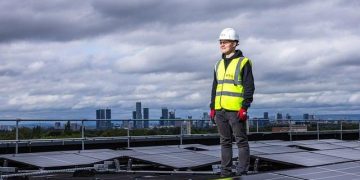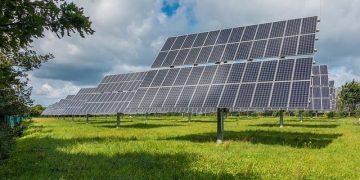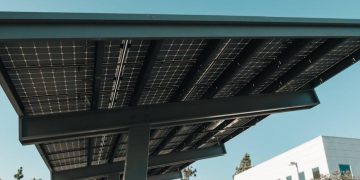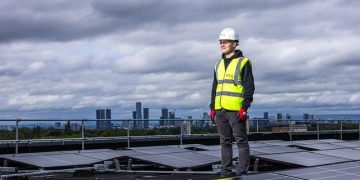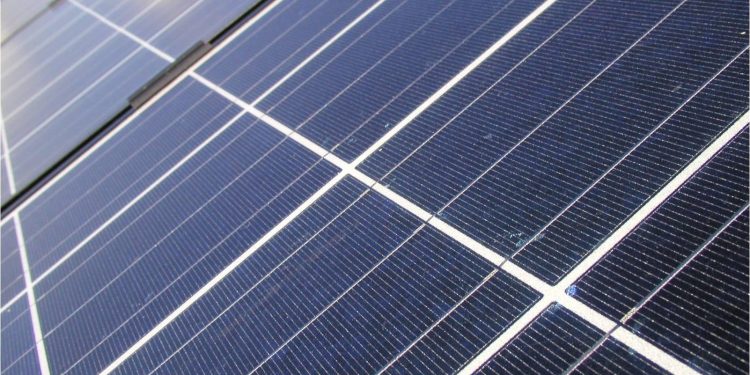In an era where the sun’s radiant embrace promises a cleaner and more sustainable future, the debate over taxing solar panels after installation casts a shadow of complexity. As rooftops across the globe transform into shimmering landscapes of photovoltaic arrays, the question arises: should these harbingers of renewable energy bear the burden of heavy taxation? Proponents argue that taxes could provide necessary revenue for infrastructure and grid integration, while critics warn that such financial barriers might stifle the momentum of green innovation. This article delves into the heart of this contentious issue, exploring the multifaceted implications of taxing solar panels in a world increasingly powered by the sun. Join us as we navigate the delicate balance between fostering environmental progress and addressing economic realities.
Economic Implications of Post-Installation Taxes on Solar Panels
Introducing taxes on solar panels after installation can have a range of economic implications that ripple through various sectors. Firstly, it could discourage potential adopters from investing in solar technology, thereby slowing down the momentum of renewable energy adoption. Secondly, the additional costs imposed on homeowners and businesses might offset the financial savings typically associated with solar energy, such as reduced utility bills. This could lead to a scenario where solar energy is no longer a cost-effective alternative to traditional energy sources.
Moreover, the imposition of post-installation taxes might impact the solar industry itself, potentially stifling innovation and growth. Key stakeholders, including manufacturers and installers, may face reduced demand, leading to job losses and decreased investments in research and development. However, proponents of these taxes argue that they could generate revenue to support infrastructure or subsidize other forms of renewable energy. Potential economic implications include:
- Reduced attractiveness of solar investments
- Possible slowdown in solar technology advancements
- Increased financial burden on current solar panel owners
- Revenue generation for governmental projects
Navigating these complex dynamics requires careful consideration of both the short-term and long-term impacts on the economy and the environment.

Environmental Consequences of Taxing Solar Energy Solutions
Taxing solar energy solutions could have significant implications for the environment. Imposing additional financial burdens on solar panel installations might deter both individuals and businesses from adopting this renewable energy source. Consequently, this could slow down the transition from fossil fuels, which are notorious for their harmful emissions. By making solar energy less attractive, a tax might inadvertently contribute to continued reliance on non-renewable energy sources, thereby exacerbating climate change.
- Reduction in Solar Adoption: Increased costs might discourage potential adopters, leading to fewer solar installations.
- Slower Emission Reductions: With less solar energy in the mix, the pace of reducing carbon emissions could falter.
- Impact on Innovation: Financial disincentives might stifle innovation and investments in solar technology advancements.
On the flip side, some argue that such taxes could generate revenue for further environmental initiatives. However, the risk of hindering progress in clean energy adoption presents a paradox that demands careful consideration. Balancing fiscal policy with environmental objectives remains a critical challenge in the pursuit of sustainable development.

Balancing Revenue and Sustainability in Solar Panel Taxation
The debate around the taxation of solar panels after installation centers on finding a balance between generating revenue and promoting sustainable energy solutions. On one hand, imposing taxes could provide governments with the necessary funds to further invest in renewable energy infrastructure and support services. However, heavy taxation may also deter individuals and businesses from transitioning to solar energy, potentially stalling the progress towards greener economies.
To achieve this balance, policymakers could consider implementing a tiered taxation system that adjusts based on factors such as energy output or the socioeconomic status of the region. Other strategies might include:
- Tax incentives for lower-income households to offset initial installation costs.
- Reinvestment of tax revenue into community solar projects and educational programs.
- Exemptions or reduced rates for areas with high pollution levels to encourage clean energy adoption.
These approaches could ensure that while governments secure necessary funding, the overall goal of increasing solar energy usage is not compromised.
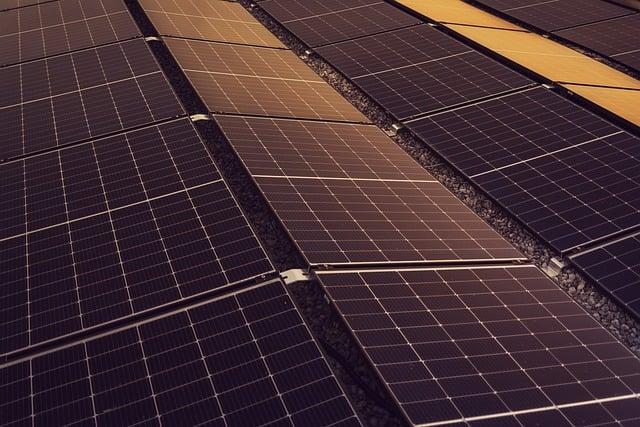
Strategic Recommendations for Fair Solar Panel Tax Policies
Creating fair tax policies for solar panels requires a nuanced approach that balances economic, environmental, and social considerations. Tax incentives should be designed to promote the adoption of solar technology, particularly for homeowners and small businesses. This can be achieved through measures such as tax credits, rebates, or reduced property tax assessments for properties equipped with solar panels. On the other hand, a modest tax on solar panel installation could be introduced to support infrastructure development, ensuring that communities have the necessary resources to integrate renewable energy into the grid effectively.
- Encourage Adoption: Implementing tax breaks for early adopters can stimulate market growth.
- Support Infrastructure: A minimal tax could be allocated to improve grid resilience and capacity.
- Equitable Access: Ensure that tax policies do not disproportionately burden low-income households, possibly by offering additional rebates or exemptions.
- Periodic Review: Regularly assess the impact of tax policies to adapt to technological advancements and market changes.
By carefully crafting tax policies, governments can foster a more sustainable energy future while addressing fiscal responsibilities and equity concerns. A strategic blend of incentives and modest taxation can create a balanced ecosystem that supports both growth and sustainability in the solar energy sector.
To Wrap It Up
As the sun dips below the horizon, casting its final golden rays across solar-paneled rooftops, the debate over taxing these glinting harbingers of a sustainable future remains as charged as ever. On one side, proponents of heavy taxation argue for the financial and regulatory balance it could bring, while opponents fear the stifling of innovation and accessibility. In the grand scheme, the decision lies at the crossroads of economic strategy and environmental responsibility. As we continue to navigate this complex terrain, the conversation must remain open, informed, and forward-thinking. Ultimately, whether these panels become beacons of progress or fiscal burdens will depend on the careful calibration of policy, innovation, and societal values. In this evolving narrative, the sun may set today, but tomorrow promises a new dawn—and with it, the chance to illuminate a path that reflects both our aspirations and our pragmatism.

